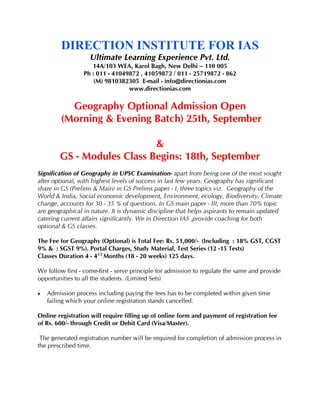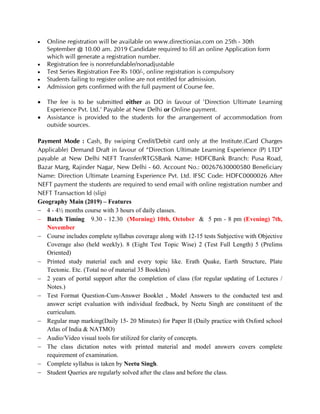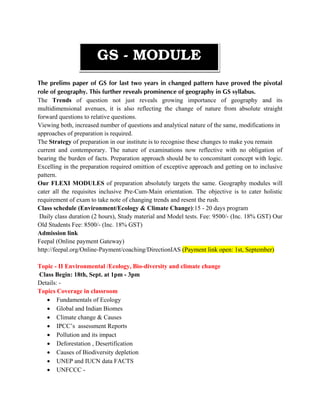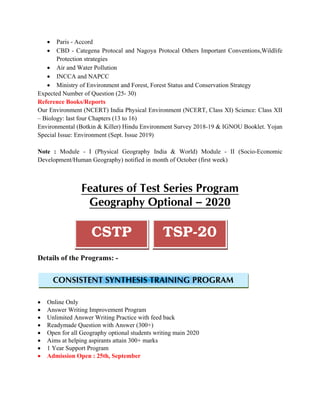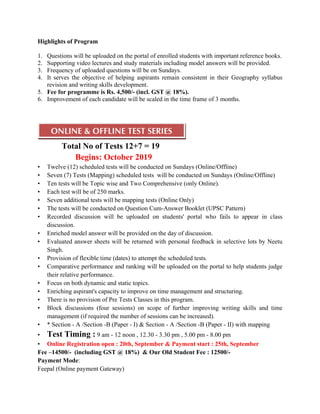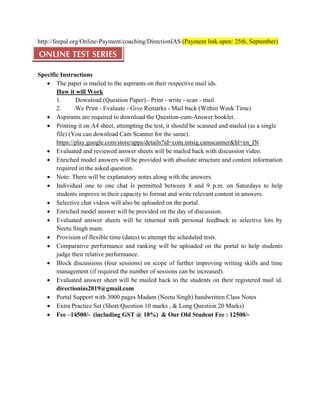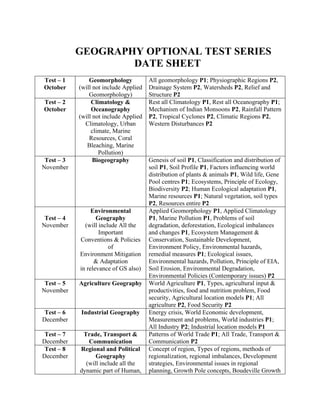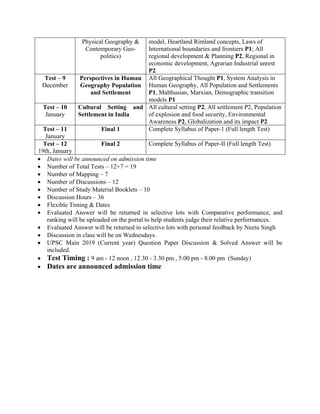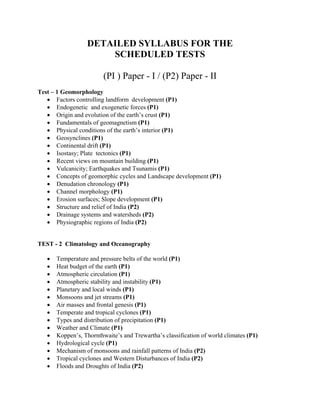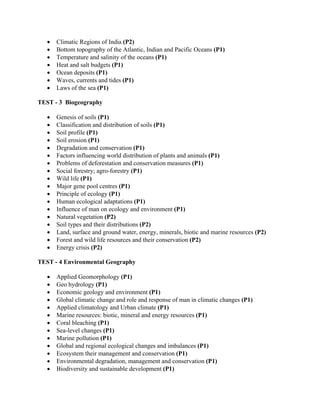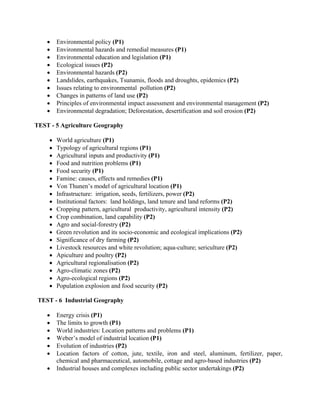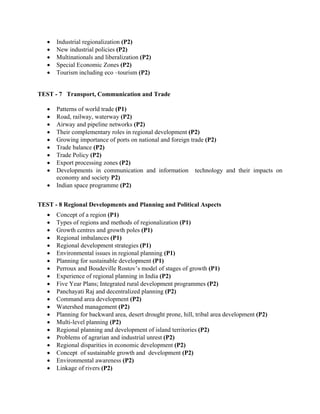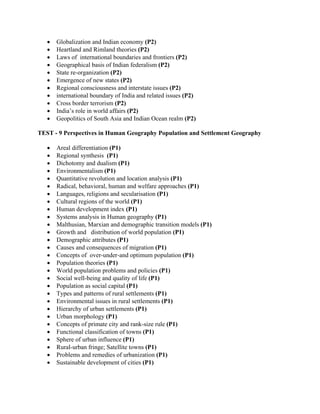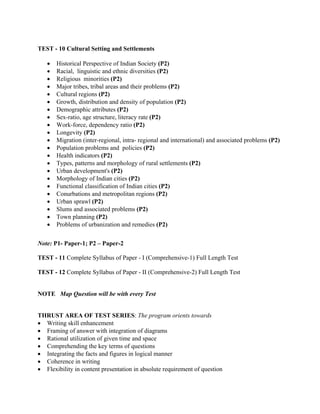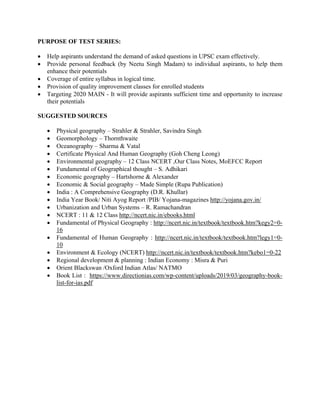The document provides information about geography optional classes and test series being offered by Direction IAS.
It announces that admission for geography optional morning and evening batches is open from September 25th. It also announces that GS modules classes on environmental/ecology topics will begin on September 18th.
The document outlines the fees and schedule for the geography optional classes and test series. The optional classes will be 4-4.5 months and cover the complete syllabus. The test series will include 12 topic tests, 2 full tests, and 7 mapping tests from October 2019 to January 2020.
